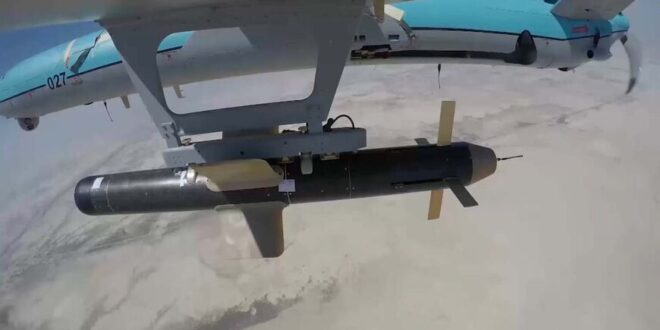Iranian officials continue to neither confirm nor deny responsibility for a recent deadly attack on US forces in Syria that has been blamed on Tehran-backed proxies.
Iran’s Foreign Ministry suggested on Tuesday that a statement by a group named the Iranian Advisory Center in Syria — which has warned US forces of fresh attacks — was not representative of Tehran’s stance.
“Iran’s official positions on the fight against terrorism in Syria will either be made public by the Foreign Ministry or the embassy in Damascus,” ministry spokesperson Nasser Kanaani said, according to the state-run IRNA news agency.
In its statement that circulated on social media last week, the body issued a warning to US forces in Syria, pledging to target them if they attack Iranian troops or bases there.
🇮🇷🇸🇾 In the name of God, the most gracious, the most merciful
"And if you return, we will return and make Hell for the unbelievers
Believe the God Almighty"
• A statement issued by the Iranian Advisory Center in Syria:
— Mahdi Rizvi (@MehdiRizvi123) March 25, 2023While carefully avoiding comment on the group’s affiliation, Kanani repeated Iran’s official line that its presence in Syria comes at the behest of the Syrian government and for the purpose of “aiding the Syrian army and people in battling terror groups.”
Iran has maintained that its forces in Syria serve a purely advisory role, rather than engaging in direct combat activities.
The statement by the largely unknown group came in response to a series of American military strikes in Syria’s Deir ez-Zor province last Thursday. The targeted facilities are reported to have belonged to the Islamic Revolutionary Guard Corps (IRGC).
The US military explained the airstrikes came as retaliation for a drone strike on a maintenance facility run by the US-led coalition. An American contractor was killed and five soldiers were wounded in what Washington blamed on Iran-backed proxy groups. Tehran, for its part, has accused the United States of targeting civilians in Deir ez-Zor.
Iran-backed militias have carried out several drone attacks on US targets in Syria in recent years, including a January attack on the Al-Tanf garrison in the Homs province.
In the aftermath last week, a claim of responsibility by yet another obscure Iraqi group was published by IRGC-linked media outlets. The Fars and Tasnim news agencies released a statement in Arabic attributed to Liwa al-Ghalibun, the “Brigade of the Victors,” without elaborating on the group’s background, sparking arguments that the IRGC is using those names as cover to evade accountability.
While walking a fine line on avoiding direct claims, Iran has acknowledged its support of a network of anti-American and anti-Israeli militias across the Middle East.
“We openly declare our support for the resistance front,” said Supreme Leader Ayatollah Ali Khamenei last week in his speech marking the Iranian new year. What Tehran hails as the “resistance front” is largely viewed by its Western adversaries as proxy terror groups destabilizing the Middle East.
Over the past decade, the IRGC’s presence in Syria and Iraq has been increasingly characterized by interference in the normal duties of the Iranian Foreign Ministry. Even ambassadors to the two countries have been appointed not from among the Foreign Ministry’s career diplomats, but from among men in uniform serving with the IRGC’s Quds Force, the notorious branch responsible for overseas activities.
As recent as Monday, senior Quds Force commander Hossein Akbari was named as Iran’s new ambassador to Damascus.
 Eurasia Press & News
Eurasia Press & News




